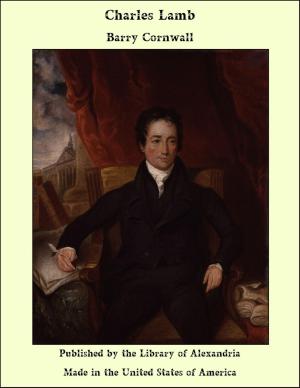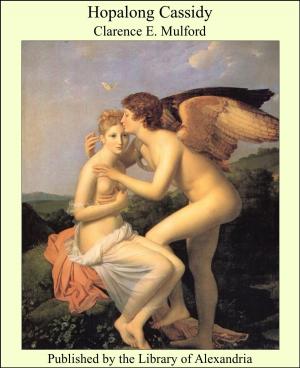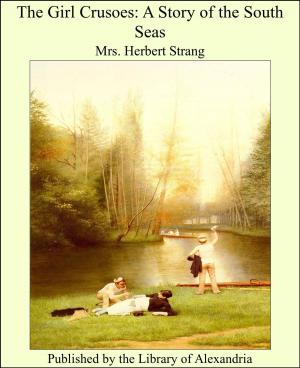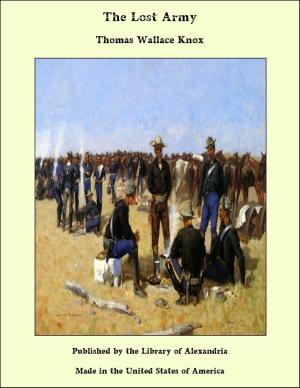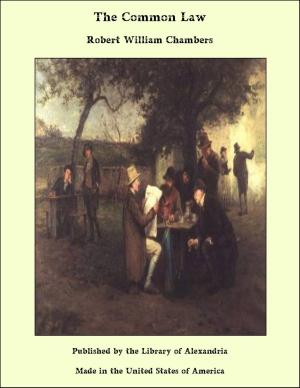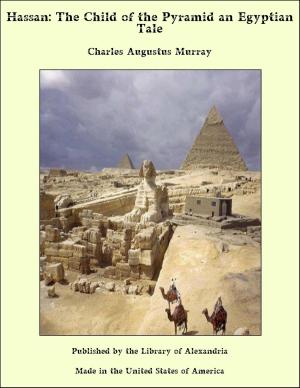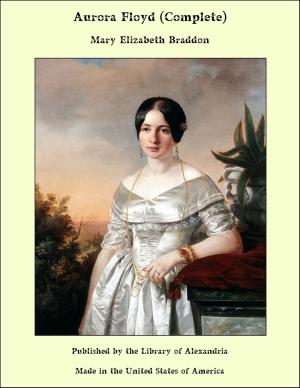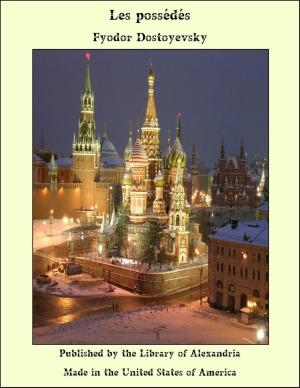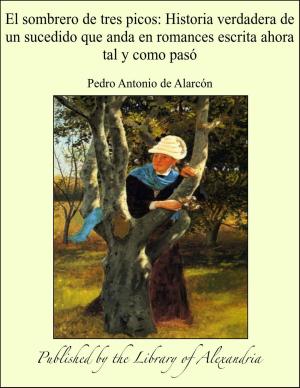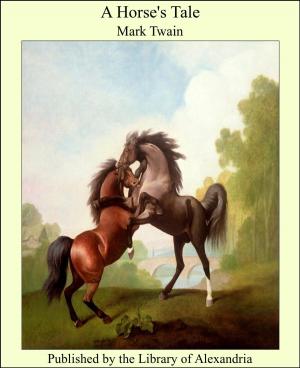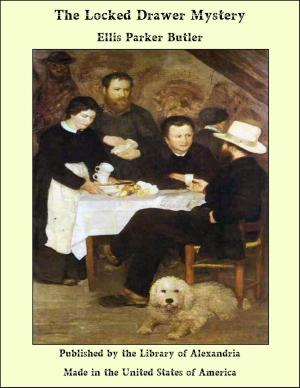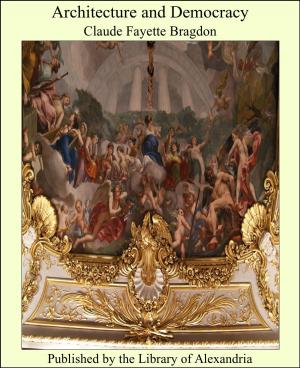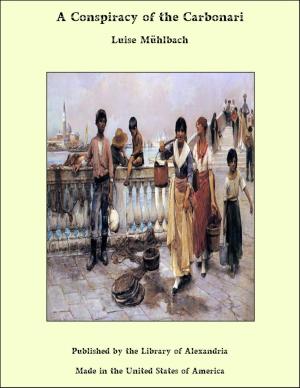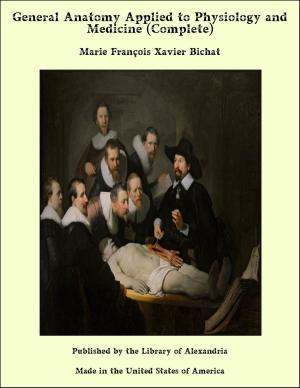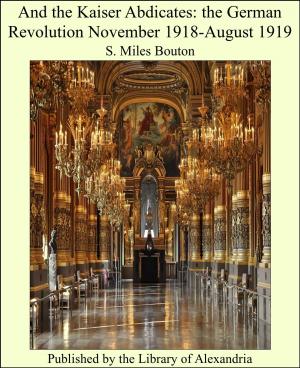| Author: | Victor Hugo | ISBN: | 9781465611291 |
| Publisher: | Library of Alexandria | Publication: | March 8, 2015 |
| Imprint: | Language: | English |
| Author: | Victor Hugo |
| ISBN: | 9781465611291 |
| Publisher: | Library of Alexandria |
| Publication: | March 8, 2015 |
| Imprint: | |
| Language: | English |
William Shakespeare was born at Stratford-on-Avon, in a house under the tiles of which was concealed a profession of the Catholic faith beginning with these words, "I, John Shakespeare." John was the father of William. The house, situate in Henley Street, was humble; the chamber in which Shakespeare came into the world, wretched,—the walls whitewashed, the black rafters laid crosswise; at the farther end a tolerably large window with two small panes, where you may read to-day, among other names, that of Walter Scott. This poor lodging sheltered a decayed family. The father of William Shakespeare had been alderman; his grand-father had been bailiff. Shakespeare signifies "shake-lance;" the family had for coat-of-arms an arm holding a lance,—allusive arms, which were confirmed, they say, by Queen Elizabeth in 1595, and apparent, at the time we write, on Shakespeare's tomb in the church of Stratford-on-Avon. There is little agreement on the orthography of the word Shake-speare, as a family name; it is written variously,—Shakspere, Shakespere, Shakespeare, Shakspeare. In the eighteenth century it was habitually written Shakespear; the actual translator has adopted the spelling Shakespeare, as the only true method, and gives for it unanswerable reasons. The only objection that can be made is that Shakspeare is more easily pronounced than Shakespeare, that cutting off the e mute is perhaps useful, and that for their own sake, and in the interests of literary currency, posterity has, as regards surnames, a claim to euphony. It is evident, for example, that in French poetry the orthography Shakspeare is necessary. However, in prose, and convinced by the translator, we write Shakespeare. The Shakespeare family had some original draw-back, probably its Catholicism, which caused it to fall. A little after the birth of William, Alderman Shakespeare was no more than "butcher John." William Shakespeare made his début in a slaughter-house. At fifteen years of age, with sleeves tucked up, in his father's shambles, he killed the sheep and calves "pompously," says Aubrey. At eighteen he married. Between the days of the slaughter-house and the marriage he composed a quatrain. This quatrain, directed against the neighbouring villages, is his début in poetry. He there says that Hillbrough is illustrious for its ghosts and Bidford for its drunken fellows. He made this quatrain (being tipsy himself), in the open air, under an apple-tree still celebrated in the country in consequence of this Midsummer Night's Dream. In this night and in this dream where there were lads and lasses, in this drunken fit, and under this apple-tree, he discovered that Anne Hathaway was a pretty girl. The wedding followed. He espoused this Anne Hathaway, older than himself by eight years, had a daughter by her, then twins, boy and girl, and left her; and this wife, vanished from Shakespeare's life, appears again only in his will, where he leaves her the worst of his two beds, "having probably," says a biographer, "employed the best with others." Shakespeare, like La Fontaine, did but sip at a married life. His wife put aside, he was a schoolmaster, then clerk to an attorney, then a poacher. This poaching has been made use of since then to justify the statement that Shakespeare had been a thief. One day he was caught poaching in Sir Thomas Lucy's park.
William Shakespeare was born at Stratford-on-Avon, in a house under the tiles of which was concealed a profession of the Catholic faith beginning with these words, "I, John Shakespeare." John was the father of William. The house, situate in Henley Street, was humble; the chamber in which Shakespeare came into the world, wretched,—the walls whitewashed, the black rafters laid crosswise; at the farther end a tolerably large window with two small panes, where you may read to-day, among other names, that of Walter Scott. This poor lodging sheltered a decayed family. The father of William Shakespeare had been alderman; his grand-father had been bailiff. Shakespeare signifies "shake-lance;" the family had for coat-of-arms an arm holding a lance,—allusive arms, which were confirmed, they say, by Queen Elizabeth in 1595, and apparent, at the time we write, on Shakespeare's tomb in the church of Stratford-on-Avon. There is little agreement on the orthography of the word Shake-speare, as a family name; it is written variously,—Shakspere, Shakespere, Shakespeare, Shakspeare. In the eighteenth century it was habitually written Shakespear; the actual translator has adopted the spelling Shakespeare, as the only true method, and gives for it unanswerable reasons. The only objection that can be made is that Shakspeare is more easily pronounced than Shakespeare, that cutting off the e mute is perhaps useful, and that for their own sake, and in the interests of literary currency, posterity has, as regards surnames, a claim to euphony. It is evident, for example, that in French poetry the orthography Shakspeare is necessary. However, in prose, and convinced by the translator, we write Shakespeare. The Shakespeare family had some original draw-back, probably its Catholicism, which caused it to fall. A little after the birth of William, Alderman Shakespeare was no more than "butcher John." William Shakespeare made his début in a slaughter-house. At fifteen years of age, with sleeves tucked up, in his father's shambles, he killed the sheep and calves "pompously," says Aubrey. At eighteen he married. Between the days of the slaughter-house and the marriage he composed a quatrain. This quatrain, directed against the neighbouring villages, is his début in poetry. He there says that Hillbrough is illustrious for its ghosts and Bidford for its drunken fellows. He made this quatrain (being tipsy himself), in the open air, under an apple-tree still celebrated in the country in consequence of this Midsummer Night's Dream. In this night and in this dream where there were lads and lasses, in this drunken fit, and under this apple-tree, he discovered that Anne Hathaway was a pretty girl. The wedding followed. He espoused this Anne Hathaway, older than himself by eight years, had a daughter by her, then twins, boy and girl, and left her; and this wife, vanished from Shakespeare's life, appears again only in his will, where he leaves her the worst of his two beds, "having probably," says a biographer, "employed the best with others." Shakespeare, like La Fontaine, did but sip at a married life. His wife put aside, he was a schoolmaster, then clerk to an attorney, then a poacher. This poaching has been made use of since then to justify the statement that Shakespeare had been a thief. One day he was caught poaching in Sir Thomas Lucy's park.

